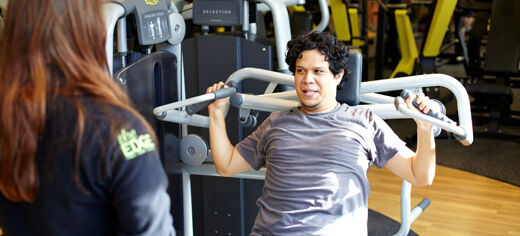
Researchers looking at ways to improve government physical activity guidelines and tackle Britain's fitness crisis are calling for volunteers to take part in a new study.
The University of Leeds project, funded by Yorkshire-based national charity Heart Research UK, will test whether exercise based on short bursts of activity is more beneficial than the daily moderate intensity exercise recommended by the government.
Dr Carrie Ferguson, Lecturer in Physiology at the University of Leeds’ School of Biomedical Sciences, said: “This is about finding ways of exercising that people can actually attain and that maximise health benefits. At the moment, the government is recommending approximately 30 minutes of moderate intensity activity on most days of the week, but in practice many people find this difficult to achieve.”
Instead, the study will ask groups of volunteers to try two alternative interval training regimes that will require less of a time commitment and, the researchers hope, equivalent or greater health benefits.
“In today’s world, people are very busy and finding a big block of time to do exercise most days of the week can be very hard,” Dr Ferguson said. “Our laboratory results indicate that the shorter interval training regime may work better, but this study will test whether it works in the real world.”
The first group of volunteers will do three home-based sessions a week, alternating one minute of intense activity with one minute of recovery for 30 minutes.
A second group will do the same sessions, but with four minutes of activity and four minutes of recovery.
The last group will follow the existing government guidance of a total of 150 minutes of moderate activity in a week.
“The moderate activity called for by the current guidelines is relatively easy–you can walk at a moderate pace and easily have a chat with the person next to you. We will be asking people to push themselves quite hard during the short bursts of the interval training. It won’t be running, but we will be asking them to walk at the maximum speed that they can manage,” Dr Ferguson said.
At the outset, volunteers will undertake baseline tests to assess their physical fitness. They will also be asked about their daily lives and the obstacles to exercise they face.
They will be given heart rate monitors and asked to pursue one of the three exercise regimes. At the end of 12 weeks of exercise training, they will repeat the tests and will be asked about their experience of the programmes and how their quality of life has been affected.
The researchers are looking for 75 people aged 18-55 years who do less than two hours of exercise a week, are non-smokers and are overweight (have a Body Mass Index 25 kg/m2 or more).
Further information
Those interested in taking part should contact Dr Ros Lancaster by email: hithome@leeds.ac.uk or telephone: 0113 343 1669.
For all other enquiries, contact Chris Bunting, Senior Press Officer, University of Leeds on 0113 343 2049 or email c.j.bunting@leeds.ac.uk